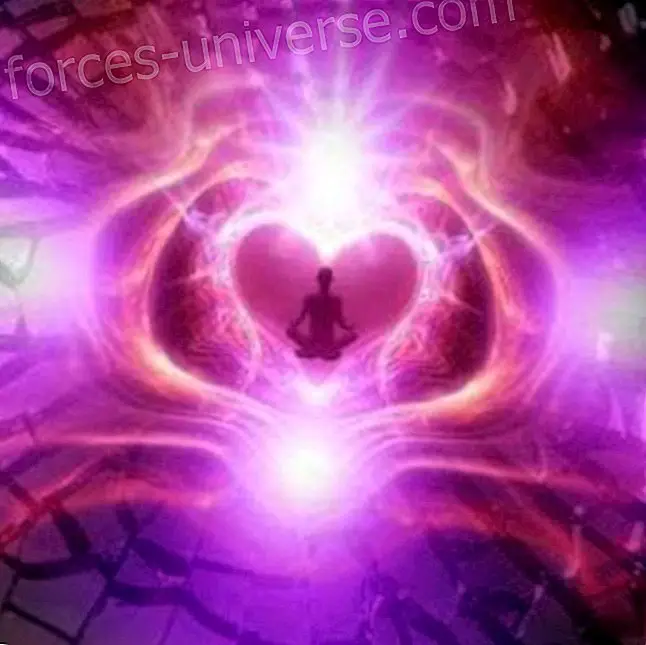
This first "gift" given to the newborn individualizes him within the family.
The child psyche, as a pet would do, identifies that sound with which they constantly attract their attention. It ends up incorporating it into its existence as if it were an organ or a viscera. In most cases, the family's desire for ancestors to be reborn slips in names: the unconscious can disguise this presence of the dead by not only repeating the entire name (in many families the firstborn receives the same name as his father, his grandfather, his great-grandfather; if he is a woman, he can receive a masculinized name that passes for example from Francisco to Francisca, from Marcelo to Marcela, from Bernardo to Bernarda, etc.). This name, if it comes loaded with a story, sometimes secret (suicide, venereal disease, imprisonment, prostitution, incest or vice, perhaps of a grandfather, an aunt, a cousin), becomes a vehicle of suffering or behavior that Little by little they invade the life of those who have received it.
There are names that lighten and names that weigh.
The former act as beneficial talismans. The seconds are detested. If a daughter receives the name of an old lover from her father, she becomes his girlfriend for life. If a mother who has not resolved the incestuous knot with her father gives the child the name of that grandfather, the son, imprisoned in the oedipal trap, will be driven to imitate the ancestor by admiring and at the same time detecting him, for being an invincible rival . Those who receive names that are sacred concepts (Holy, Pure, Incarnation, Immaculate, etc.) may feel them as orders, suffering sexual conflicts. Those baptized as angels (Angelica, Rafael, Gabriel, Celeste, etc.) may feel unincarnate. The Pascual, Jesus, Enmanuel, Cristián or Cristóbal are very likely to suffer delusions of perfection and at 33 years of age they have anguish of death, accidents, economic ruins or serious illnesses.
Sometimes the names given are the product of the unconscious desire to solve painful situations.
For example, if a man when he was a child was separated from his mother, he will call his son Juan-María, realizing in that double name his desire to join her. If a child dies, they can be called René (from Latin renatus, which means "reborn"). If an ancestor was arrested, to the shame of his family, for having committed a scam or robbery, a direct descendant may be baptized as Innocent. If a woman with incestuous attachment marries a man who has the same name as her father, she can beget children who suffer from generational confusion: unconsciously, when living as children of her grandfather, they will consider their mother as a sister, what they It will cause immaturity. If after a girl a child is born who is baptized with the name of her masculinized (Antonia followed by Antonio, Francisca followed by Francisco, etc.), she can report that the birth of the girl was a disappointment and the young woman, considering herself The scheme of a future man, can live mired in a painful contempt for herself, feeling incomplete.
A name taken from movie or television stars, or from famous writers
It imposes a goal that the celebrity demands, which can be distressing if you don't have artistic talent. If parents transform their children's names into diminutives (Lolo, Pepe, Rosi, Panchita), they can fix them forever in childhood.
Unconscious meaning of names
The unconscious, by its collective nature, hides meanings in the names that the individual, without knowing them consciously, suffers. The names of saints induce qualities, but also transmit martyrdoms. Some Mary may be besieged by the desire to father a perfect child. Some José may have difficulty satisfying a woman. Saint Valeria's head was cut off: women who receive this name may tend to madness. Certain Mercedes, a name that descends from Latin merces (salary, payment), may be tempted by trade, exercised with honesty.
The names, in the unconscious, function as mantras (verses taken from Vedic works and used as charms). These words, by their constant repetition, cause vibrations that produce certain hidden effects. Brahmins believe that every sound in the physical world awakens a corresponding sound in the invisible realms and encourages the action of one force or another. According to them, the sound of a word is an effective magical agent and the main key to establish communication with immortal entities. For the person who, from birth to death, repeats and hears his name repeated, it works like a mantra. But a repeated sound can be beneficial or harmful. In most cases the name consolidates a limited individuality. The ego affirms "I am like this and not otherwise", losing fluency, getting anxious.
The great adherents of Magic, like Eliphas Lévi, Aleister Crowley or Henri Corneille-Agrippa, affirmed that the human being had two bodies, one physical and the other of light (also called energy body or soul) which, being sacred, did not I could have a personal name. The name that is pronounced, attached as a leech to the physical body, only manifests the illusory individuality of the person. The body of light is part of the unpronounceable name of God. The purpose of these magicians was to develop or remember the body of light, integrating it into everyday consciousness. If a functional balance of the body of light with the physical body is achieved, the ego ego is eliminated. The awareness of the essential being opens the door of freedom by ceasing to be chained to his first name, if he lives painfully.
Manual of psychomagia, Tips to heal your life, Alejandro Jodorowsky
COMMENTS BY MARIO LIANI
Greetings to !
I disseminated this text by finding it similar to many of the numerological postulates that I usually use during my Numerology Courses or Seminars, in the sense that each element of human identity (Names + Surnames) usually exercises a powerful influence on the behavioral model.
In other words, although it sounds incredible to many, one IS as it is called or called, because as Jodorowsky also states, the name vibrates as a mantra vibrates when it is repeated countless times.
If a name means something, from repeating it so much, one a just believed it, the others acaban just accepting it that situations occur related to their meaning.
Although I do not deny that certain names come loaded with powerful family or ancestral feelings, I do not agree with certain meanings that many authors often give to certain names, such as, for example, that sacred names originate sexual conflicts or that a biblical name exerts an influence similar to the religious tradition associated with it. In affirming this, it seems to me that one could be generalizing to the extreme.
From my own experience, I have seen that the vibrational or behavioral meaning of names may not necessarily be associated with the semantic meaning. It is not the rule, although I do not rule out that this happens in any specific case. . However, I must say that so far it has not been my turn to witness a similarity between the semantics of a name, its archaic, mystical or mythological meaning in relation to its numerological meaning. Logical.
The truth is that we must be very careful when choosing a name (for whatever purpose), since that vibration will not only generate a certain behavioral model in its wearer, but will attract certain cyclic situations into your life that they will originate certain experiences associated with the meaning of that name itself.
To show a button. From the numerological point of view, in general ...
The Maria, for example, are people who like to be emotionally invaded because they repress emotions, even if they are very sensitive. This category also includes Claudia, Damian, Flavia, Greta, Hugo, Rene, Ruben, for example.
Sara and Susana are usually undecided.
Alex, Joel, Judy, Mabel and Samantha are usually very impulsive.
Barbara, Bruno, Damiana, Flora, Hilda, Nelson, Rafael, Vicky, Walter, for example, tend to be emotionally pendulous, unstable or emotionally bipolar (to a greater or lesser extent depending on several factors).
Antonio, Henry, Ivonne, Josefina, Orlando, are usually reserved, introverted or uncommunicative.
Desiret, Dorelys, Efrain, Estefania, are impulsive and want to enjoy the pleasures of life, where sex could have an important place or generate a great curiosity or attraction.
Cecilio, Desiret, Franklyn, Giovanna, Lisandro, Marilyn, Mildred, are perceived as charismatic, having a great desire to excel professionally and to be recognized for it, so they project a great sense of personal importance.
Alexander, Cristian, Griselda, Humberto, Roberto, are usually fanciful, imaginative, maybe naive as children (or people see them as naive).
Maria Isabel, impulsive and risky at work level, always against rules and regulations.
Anyway ... The above is not clear, because what I missed is that human behavior is determined not only by the name that is used but by other factors related to identity, in which we know - for example - the last name intervenes of the person and also the date of birth of the same.
When different behavioral elements are combined, they may be complementary, but they can also be contradictory. This means that although we can observe a certain behavioral tendency due to the name that a person uses, it could be exacerbated or repressed by the other factors present, which makes each case a unique case.
If any of you wish to deepen this interesting topic, I cannot fail to recommend that you consider attending one of my Vocational Training Courses or Seminars in Transpersonal Numerology.
Fraternally
Mario Liani
www.38uh.com
THE MEANING OF THE NAME IN PSYCHOGENEALOGY by Alejandro Jodorowsky






